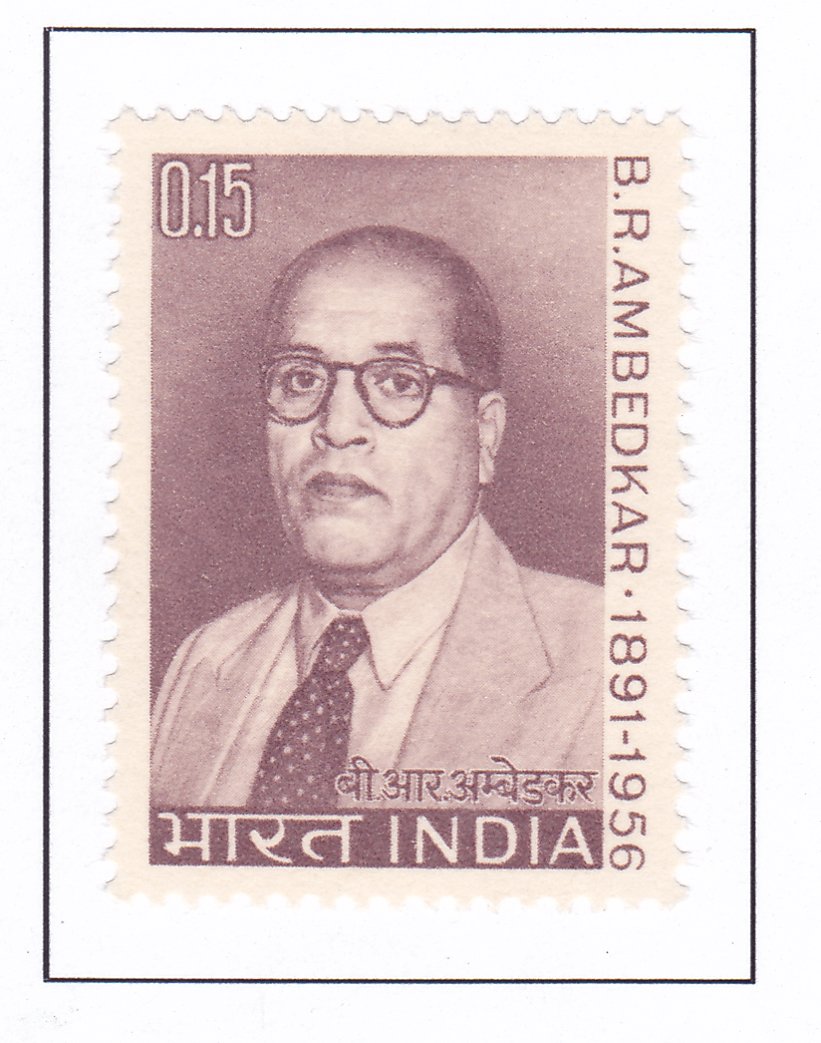DR. B.R. Ambedkar 1891-1956

Technical Data
| Date of Issue | April 14, 1966 |
|---|---|
| Denomination | INR 0.15 |
| Quantity | 2,000,000 |
| Perforation | comb 14 x 13½ |
| Printer | Security Printing Press, Nashik |
| Watermark | No Watermark |
| Colors | Purple brown |
| Catalog Codes |
Michel IN 409 Stamp Number IN 432 Yvert et Tellier IN 204 Stanley Gibbons IN 544 |
| Themes | Anniversaries and Jubilees | Famous people | Lawyers-Advocates | Men | Optical Instruments |
Dr. B.R. Ambedkar’s brilliant intellect would have shone brightly in any era and society. He emerged during a period of socio-political upheaval in India and seized the opportunity to lead the charge. The circumstances of his birth as an ‘untouchable’ added a poignant twist of fate to his pivotal role during India’s transition from colony to republic. Born into a Mahar family on April 14, 1891, in Mhow, his father served as a Subedar in the Mahar regiment. Even as a child, he recognized the importance of education in improving his circumstances, stating, ‘nobody can remove our grievances, as well as we can.’
After completing his graduation, he received a scholarship to Columbia University at the age of 22. There, he pursued studies in Economics and Law, earning a Doctorate in Philosophy for his thesis on Provincial Finance in British India. Subsequently, he continued his legal studies in London, ultimately being called to the Bar from Gray’s Inn. Returning to India in 1923, he launched a campaign to uplift the Harijans and fought for their rights.
Politically, he advocated for a united self-governing Indian community with special constitutional protections for the oppressed classes. While he identified as a socialist, Dr. Ambedkar emphasized the importance of religious and social equality alongside economic reforms. Despite his sometimes controversial stances, his patriotism and erudition led independent India to leverage his talents to consolidate its newfound freedom.
As Minister of Law and chairman of the Drafting Committee, Dr. Ambedkar played a pivotal role in framing the Indian Constitution. His expertise in Constitutional Law and his influence on politics, social reform, education, and religion were profound and far-reaching. He passed away on December 6, 1956, but his 75th birth anniversary on April 14, 1966, serves as a fitting occasion for the P & T department to honor his legacy with a commemorative stamp.
